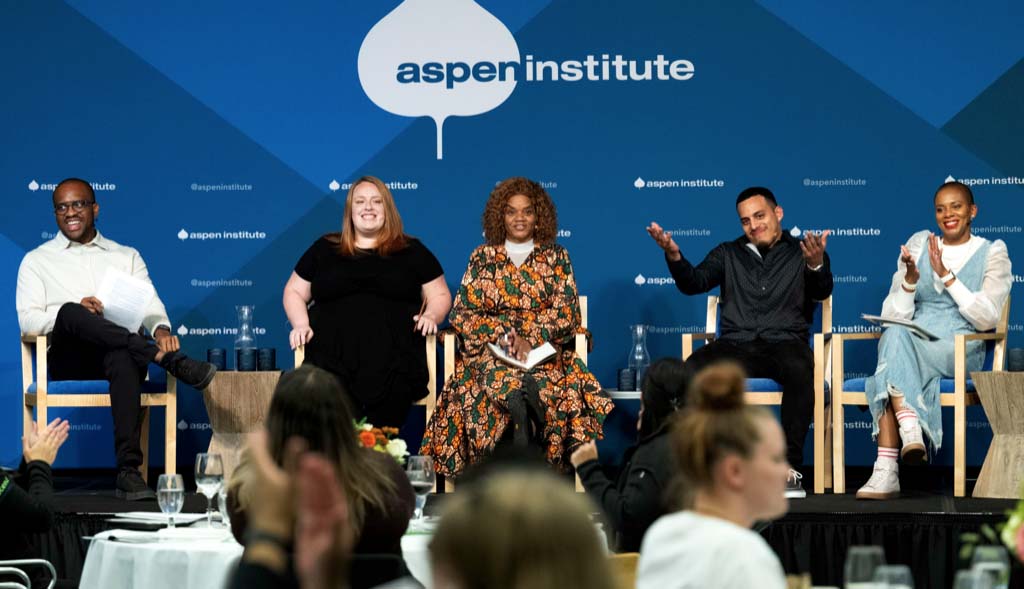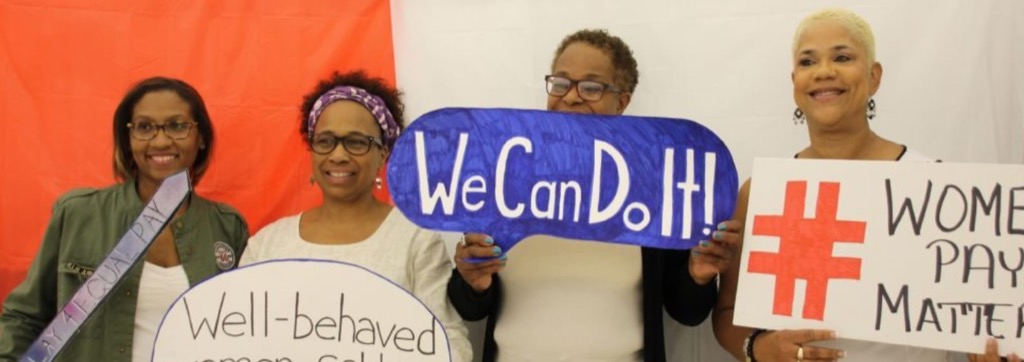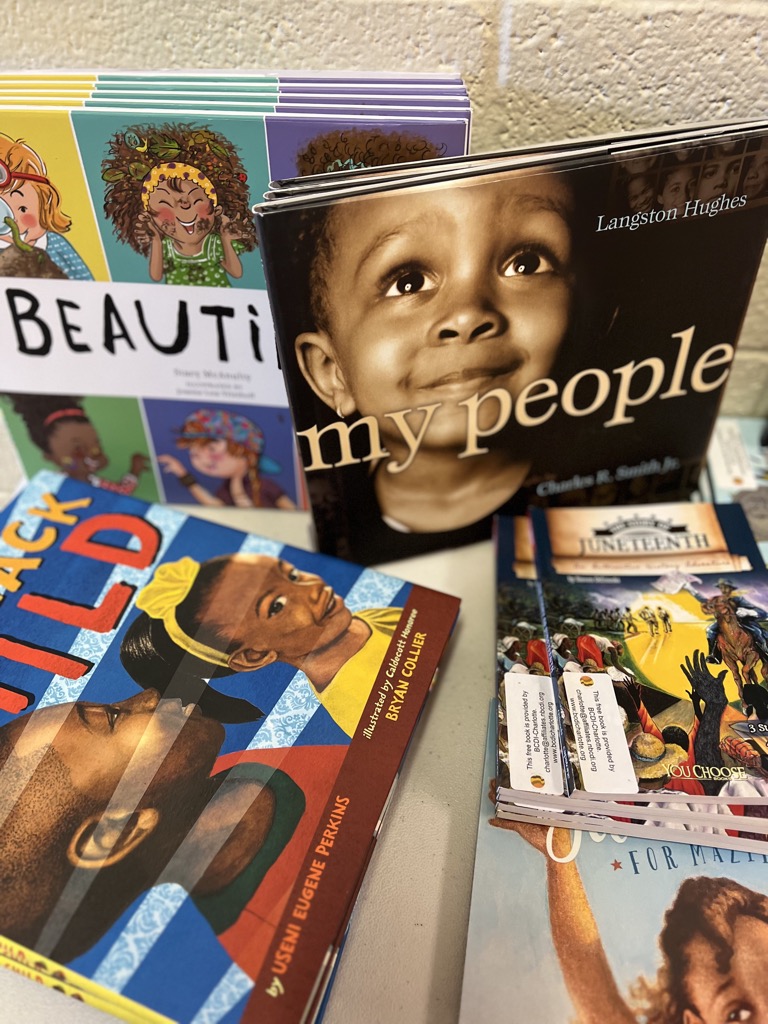
United States
Reshaping Movements for Change with Community-Built Power

The field operation was mainly impacted folks — child care providers and the families in need of child care. It was women, nonbinary folks and youth of color. The message was that this is your money, and you have the opportunity of a lifetime to decide what happens to it.
Eli Cuna, Vote Yes for Kids' from an interview with The 19th
Our work in the US bridges both early childhood and postsecondary education, and although these systems are interconnected, each features its own set of policies and institutions that shape the trajectory of change. Encouragingly, we saw promising indications in each ecosystem that those with lived expertise are moving from the margins to the mainstream and are gaining more power and influence to shape change as a result.
Both the early childhood and postsecondary education systems had to navigate crises over the last year. From responses to the SCOTUS decisions on race-conscious higher education admissions and student loan debt forgiveness to the federally funded child care cliff that destabilized an already fragile early education system, we were heartened to see those with the most at stake — including student parents, home-based providers, parents and providers of color — leading conversations on the path forward. By investing in leaders on the front lines of change and most proximate to the challenges, we are helping to develop more effective messengers and advocates, who then have more power to demand the solutions that best serve their community's needs.
Student Parents
More formal collaborations and technical assistance programs are emerging within the student parent ecosystem to meet growing interest among postsecondary institutions to better serve student parents. In parallel, new, potentially transformative ideas to increase access to child care on community college campuses are gaining high-profile attention. Whether student parents serve as compensated advisors to these efforts or assume positions of power and influence, we've seen how early investments in cultivating student parent leadership have baked equitable practices into the field's emerging infrastructure — and created a pipeline of proximate leaders who can continue to lead the field for years to come.

- Recognizing that their lived expertise is critical to understanding how the postsecondary system can be most effectively and sustainably redesigned to support their success, the expertise and participation of student parents are embedded into the development of every major new technical assistance program or field initiative. This includes the new California Alliance for Student Parent Success,the first formal statewide effort to galvanize change for student parents.
- This year's second iteration of Ascend at the Aspen Institute's Parent-Powered Solutions Fund, a parent-led fund that supports nonprofits focused on increasing student parent success received double the previous round's applications. This shows not only growing interest in student parent resources but also recognizes student parents as legitimate decision-makers and influencers.
Early Childhood

- New power-building efforts coordinated by IF partners Child Care NEXT, Raising Child Care Fund's (RCCF), and Child Care for Every Family Network are focused on stitching together diverse constituencies into a unified, equity-driven vision for change — and are delivering transformative long-term returns. In Minnesota, for instance, RCCF's partner, ISAIAH, helped lead the coalition that won the passage of the state's 12-week paid family leave law, an organizing triumph 10 years in the making.
- In collaboration with Vote Yes for Kids, New Mexico's successful ballot initiative in 2022 to enshrine funding for early childhood education in the state's constitution was won by the providers and parents who organized their communities to vote. Our continued investment this year ensures that these leaders and their expertise — “Era pura señoras…all women, Latina women, with accents, working their asses off, ” as Vote Yes for Kids' Eli Cuna put it – are at the table as this new policy is implemented.
- As two of the few outlets with dedicated early education beat reporters, EdSurge and The Hechinger Report (Hechinger) are filling a gaping coverage gap: from EdSurge's in-depth series on the link between access to affordable housing and child care to Hechinger's skilled reporting on both the inequities embedded into early childhood education and the innovative ideas that lead the path forward. With pieces published in partnership with national top-tier outlets like The Associated Press and The Washington Post, their careful, equity-centered reporting on early learning solutions is increasingly reaching broader audiences.
Elevating the expertise and leadership of those most proximate to the issues is not just the equitable thing to do, it's also smart strategy: Building power among those most impacted is a prerequisite for sustaining successful systems change.
Supporting Partners in Advancing Justice and Equity in Education Ecosystems
Some of our proudest moments as a team came when we or our partners had to choose between leading with our values or downplaying our pursuit of justice, equity, diversity and inclusion in the face of legal and political pressure.
From the SCOTUS ruling to limit race-conscious admissions, rolling back 50 years of precedent, to state debates over social-emotional learning and the accessibility of diverse picture books in early childhood education settings, the culture wars intensified beyond K-12 education over the last year. In response, we joined philanthropic efforts to resist increasing backlash in early childhood and higher education.
Limiting content denies children opportunities to learn about themselves, and to relate to other people.
Leah Austin, President and CEO, National Black Childhood Development Institute, from an interview with The Associated Press

We continue to hear from our partners and collaborators that they need philanthropy to double down on equity efforts and remain steadfast in investment in leaders of color, particularly Black, Latinx and Indigenous leaders. As a member of a funders collective focused on equity in higher education, we've worked to encourage funders to consider harnessing our collective power and influence toward equity, signaling to the broader ecosystem that equity in higher education is imperative.
Unwavering commitment to JEDI will be increasingly important, even beyond higher education, as efforts to limit race-conscious decision-making in other sectors, like venture capital, gather steam. Recognizing the toll that these fights take on those who are on the frontlines of advancing equity, we continued to incorporate funding efforts and specialized grants focused on well-being in 2023.
Partner Highlights
$2.7M
invested in 13 states
As a 501(c)(4) action fund that provides grants and technical assistance to state advocates and grassroots organizations committed to advocating for early childhood education, Impact Fellows invested $2.7 million in 13 states, catalyzing $6.3 billion in public investment for young children and families. In collaboration with other advocates, Impact Fellows' New York partner, Alliance for Quality Education, helped secure $500 million in public investment to support up to 150,000 child care workers with bonus payments ranging from $2,300 to $3,000.
Leaders of color are facing outsized barriers to accessing philanthropic funds…compared to their white peers.
Focused on accelerating equity-driven innovations in early childhood and supporting BIPOC and early childhood innovators with lived expertise, Promise Venture Studio leveraged its Early Childhood Leaders of Color (EC LOC) Collaborative to develop two working groups in 2023 that aim to build power within the field. The first, a Funder Advocacy Working Group with 12 EC LOC members, is focused on cultivating leaders' social capital, and the second is a Philanthropy Action Group for Equity with four philanthropic organizations committed to a more liberatory funding environment that elevates the voices and power of EC LOC.

FamilyU, Generation Hope's pioneering technical assistance program, welcomed its third cohort this year. In just two years since FamilyU's launch, Generation Hope and its student parent fellows have helped nearly 20 institutions across the country create more welcoming campus environments for parenting students. Also in 2023, Generation Hope launched its FamilyU Seal, recognizing outstanding institutions committed to student parent success and expanded its Scholar Program to New Orleans, which will also be the site of HOPE 2024, Generation Hope's first national student parent conference.
↑14%
increase in likelihood of graduation for students who received messages from “Ana”
Upswing is an integrated student services platform designed to provide online and post-traditional students with a variety of services that improve persistence and completion, including tutoring, advising and mental health services. In 2023 alone, Upswing's virtual, AI-powered SMS assistant “Ana” sent nearly 1 million messages to students at over 60 higher education institutions. Upswing's data has shown that Ana increases the likelihood of graduating by 14%, indicating that a bit of additional guidance and support can go a long way. The platform's new partnership with BetterMynd will help higher education institutions make mental health resources more accessible to their students through teletherapy.
Up Next

Sub-Saharan Africa
We explored the power and potential to achieve real, sustained change when local organizations and leaders drive solutions and when strategy incorporates a gender-responsive lens.

Brazil
Supporting Black and Indigenous advocates, we leaned into the opportunities that 2023 created to make meaningful policy advancements around racially affirming education and explore philanthropy’s role in anti-racist advocacy.